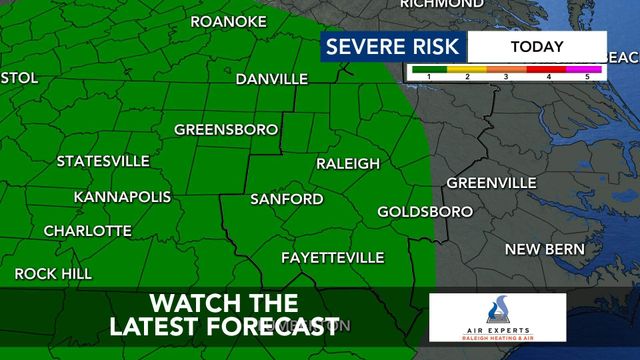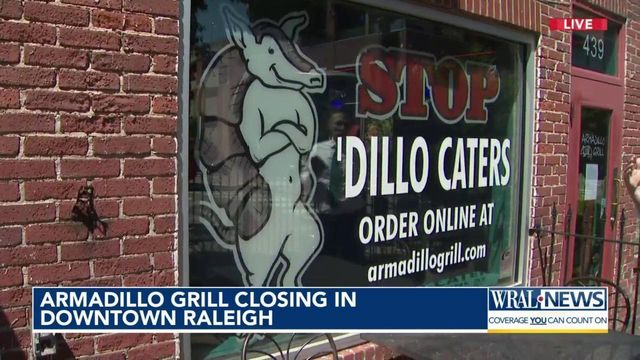25% of violent deaths in NC a result of intimate partner violence

This article was written for our sponsor, eNOughNC.
Data collected by the North Carolina Violent Death Reporting System shows almost a quarter of violent deaths in North Carolina are the result of intimate partner violence. Additionally, IPV is the leading cause of female homicides, comprising approximately 50 percent of these deaths.
To address these sobering statistics, the state has developed assistance programs ranging from counseling to 24-hour hotlines. There is also an address confidentiality program, which protects victims by making their home addresses less available to their abusers.
These programs are meant to give victims of IPV a number of resources to rely on for help.
"Thankfully, in our state we have resources for people to turn to," said Catherine Guerrero, Associate Director for the N.C. Coalition Against Domestic Violence. "Whether one is facing a physically violent partner, an emotionally abusive partner, a stalker, or a has a friend in need of assistance, there are programs in every county across the state that can help."
North Carolina IPV resources
The North Carolina Coalition Against Domestic Violence website has organized a comprehensive list of resources categorized according to county. Below are resources for the three most populated areas in North Carolina (Charlotte, the Triad and the Triangle).
Charlotte (Greater Charlotte Metro area)
Safe Alliance - The Shelter for Battered Women
601 East Fifth Street, Suite 400
Charlotte, NC 28202
Office: 704-332-9034
Crisis: 704-332-2513
Website: safealliance.org
Safe Alliance - Victim Assistance
720 East 4th Street, Room 204
Charlotte, NC 28202
Office: 704-336-4126
Website: safealliance.org
Mecklenburg County Women's Commission
700 North Tryon St.
Hal Marshall Building
Charlotte, NC 28202
Office: 828-765-4015
Website: css.charmeck.org
Shelter of Gaston County
330 N. Marietta St.
Gastonia, NC 28052
Office: 704-810-6492
Crisis: 704-852-6000
Website: gastongov.com
Piedmont Triad (Greensboro, Winston-Salem and High Point)
Family Service of the Piedmont (Jamestown)
902 Bonner Drive
Jamestown, NC 27282
Office: 336-889-6105
Crisis: 336-273-7273
Website: safeandhealthyfamilies.com
Family Service of the Piedmont (Greensboro)
315 East Washington St.
Greensboro, NC 27401
Office: 336-387-6161
Crisis: 336-273-7273
Website: safeandhealthyfamilies.com
Family Services, Inc. (Admin Office)
1200 S. Broad Street
Winston-Salem, NC 27101
Toll free: 800-316-5513
Crisis: 336-723-8125
Website: fsifamily.org
Family Services Shelter (Shelter Office)
PO Box 604
Winston-Salem, NC 27102
Office: 336-722-8173
Website: fsifamily.org
Safe on Seven
200 N. Main Street
Winston-Salem, NC 27101
Office : 336-779-6320
Website: Safe on Seven
Research Triangle Area (Raleigh, Durham, Cary, Chapel Hill, Wake Forest and the greater Triangle area)
The Family Violence Prevention Center, d/b/a InterAct
1012 Oberlin Rd.
Raleigh, NC 27605
DV Crisis Line: 919-828-7740
SA Crisis Line: 919-828-3005
SAFE Center: 866-291-0854
Office: 919-828-7501
Website: interactofwake.org
Durham Crisis Response Center
206 N Dillard Street
Durham, NC 27701
Office: 919-403-9425
Crisis: 919-403-6562
Website: durhamcrisisresponse.org
Compass Center for Women and Families
Mailing address:
PO Box 1057
Chapel Hill, NC 27514
Physical address:
210 Henderson Street
Chapel Hill, NC 27514
Office: 919-968-4610
Crisis: 919-929-7122
Crisis (toll free): 866-929-7122
Website: www.compassctr.org
In addition to the programs listed above, there are other North Carolina-based non-profit organizations and governmental assistance programs that provide help to those trying to repair their lives or escape their abusers.
The N.C. Council for Women has an interactive map of these programs across North Carolina. There are programs available that cover domestic violence, sexual assault, and abuser treatment for those in every part of the state.
"We are fortunate in North Carolina to have a variety of programs," Guerrero said. "Anyone seeking help can contact one of these organizations for help or a referral. People can call even if they don't know exactly what they need. Advocates can listen, problem solve and help identify the best resources or services for a particular need."
Also, many national groups and nonprofits, like Break the Cycle, Futures Without Violence, Men Can Stop Rape, National Domestic Violence Hotline, and the Rape, Abuse and Incest National Network help provide assistance for victims, abusers and family members of abusers or abuse victims.
This article was written for our sponsor, eNOughNC.











